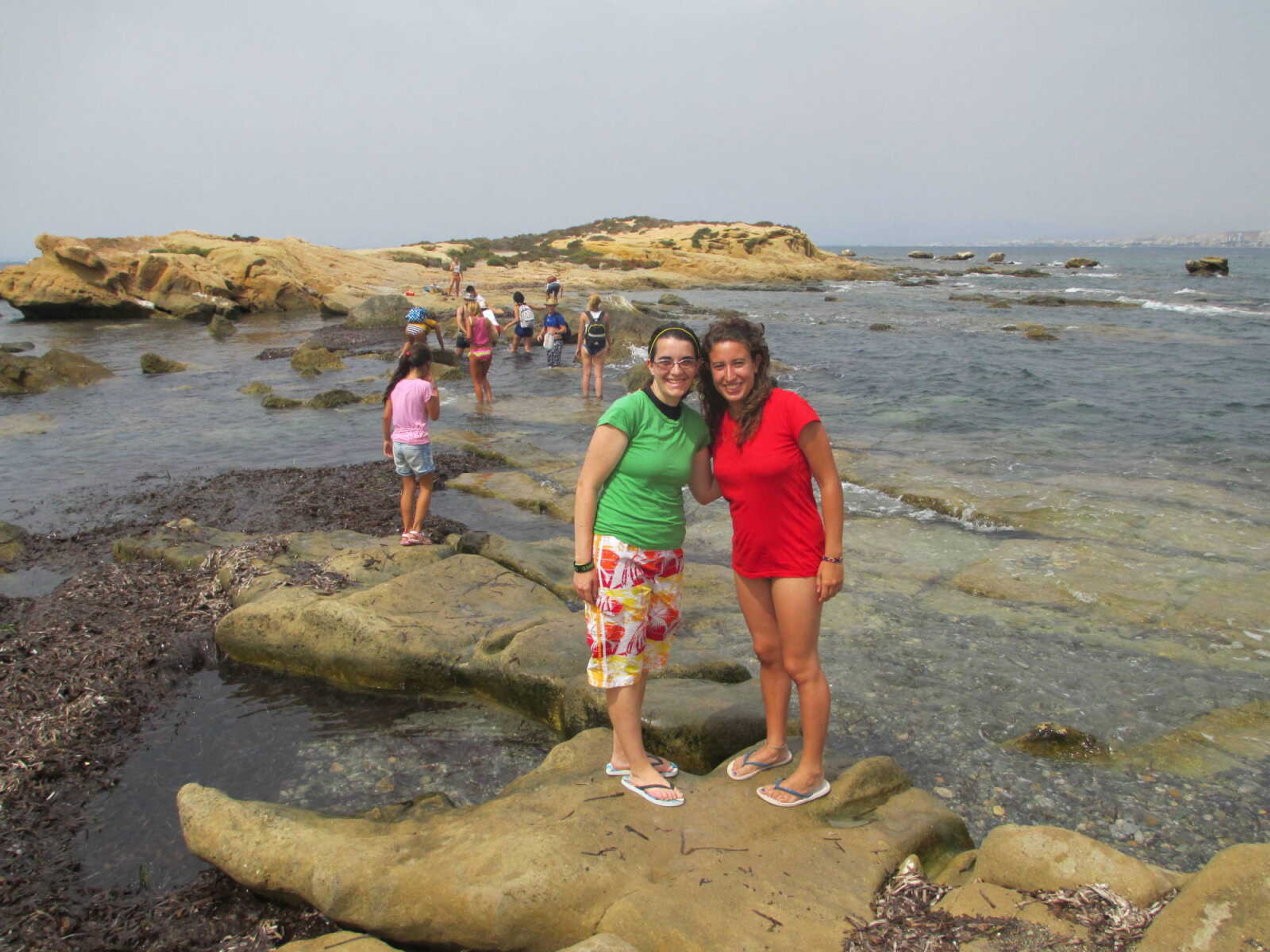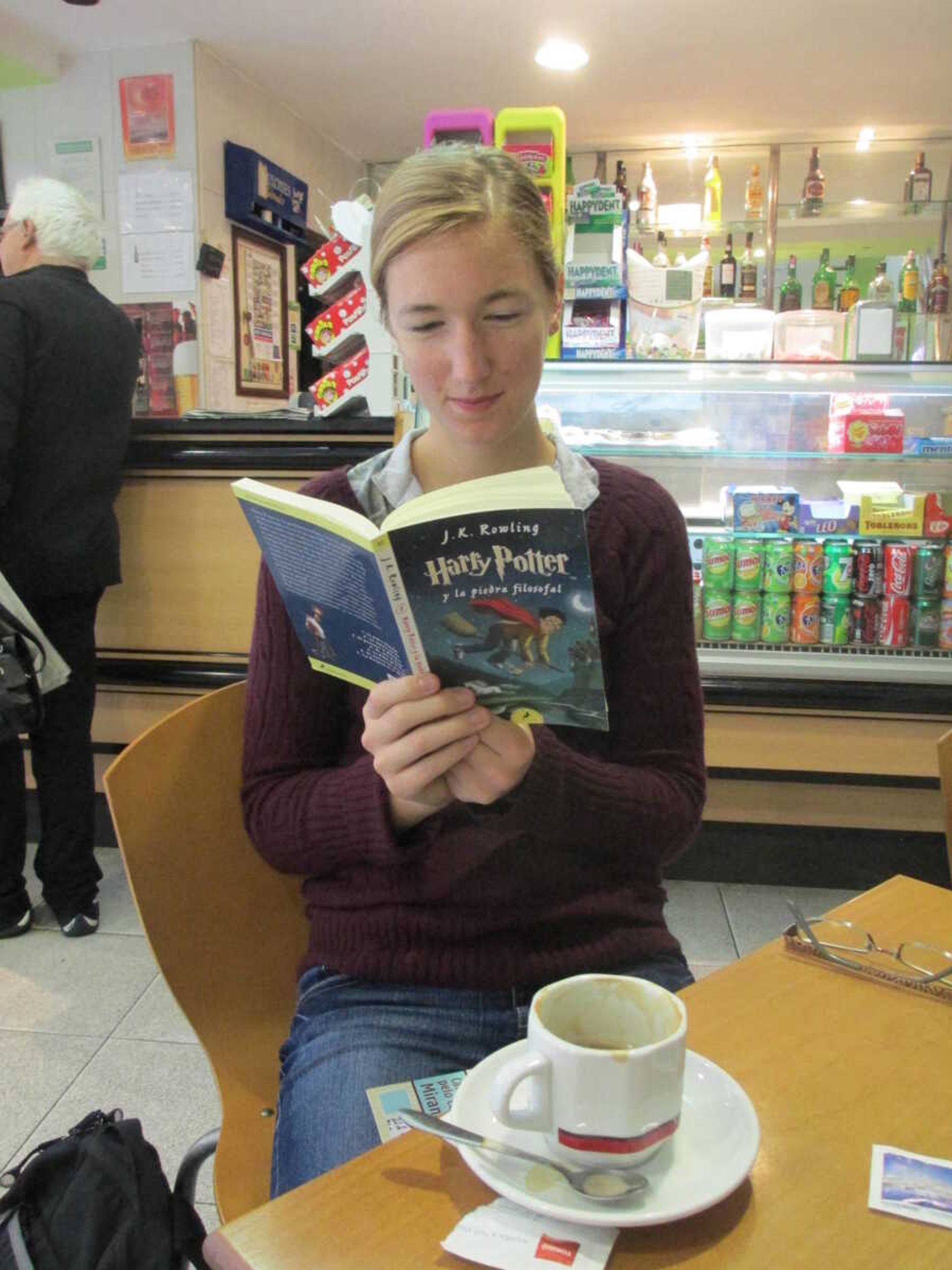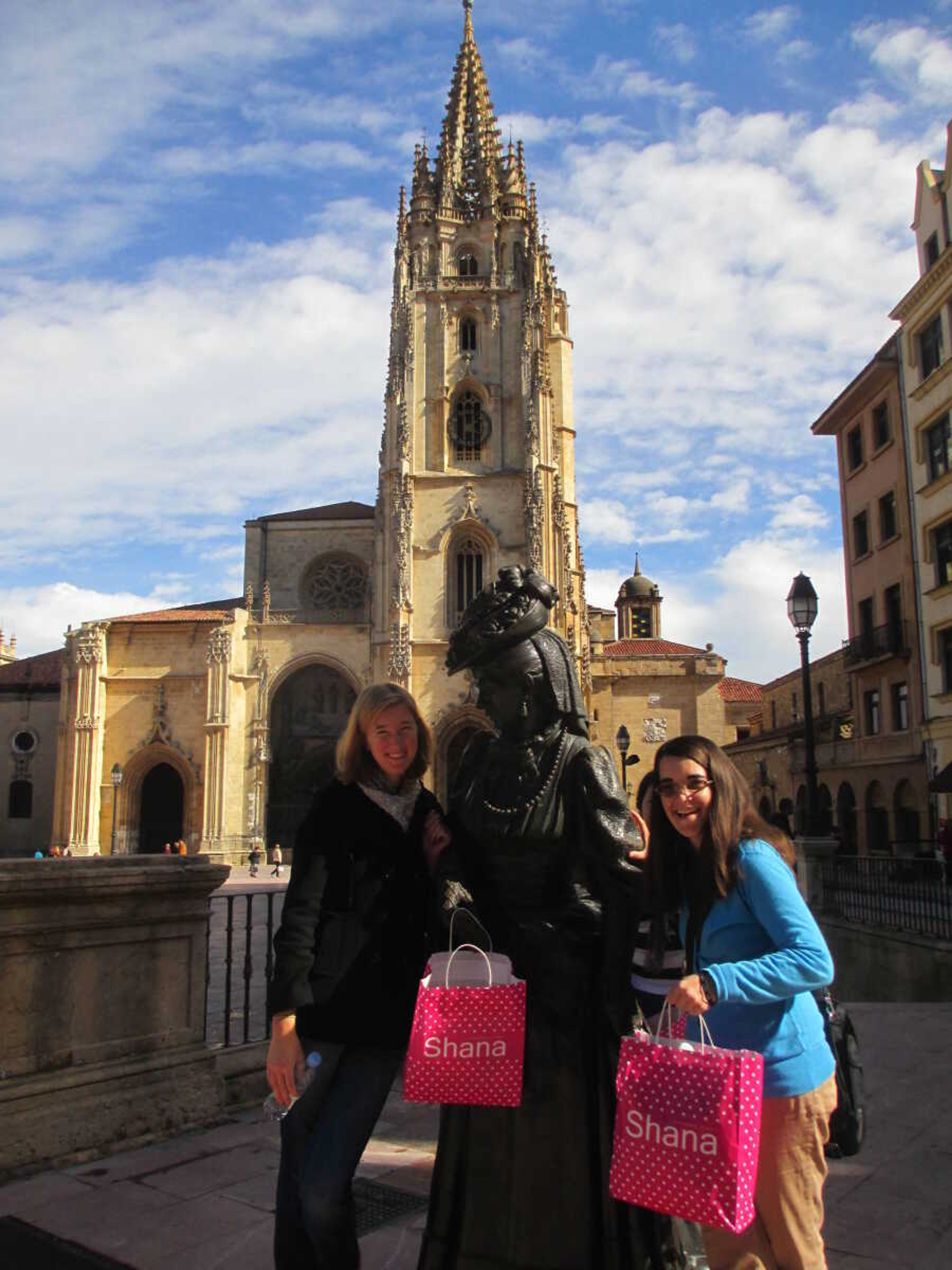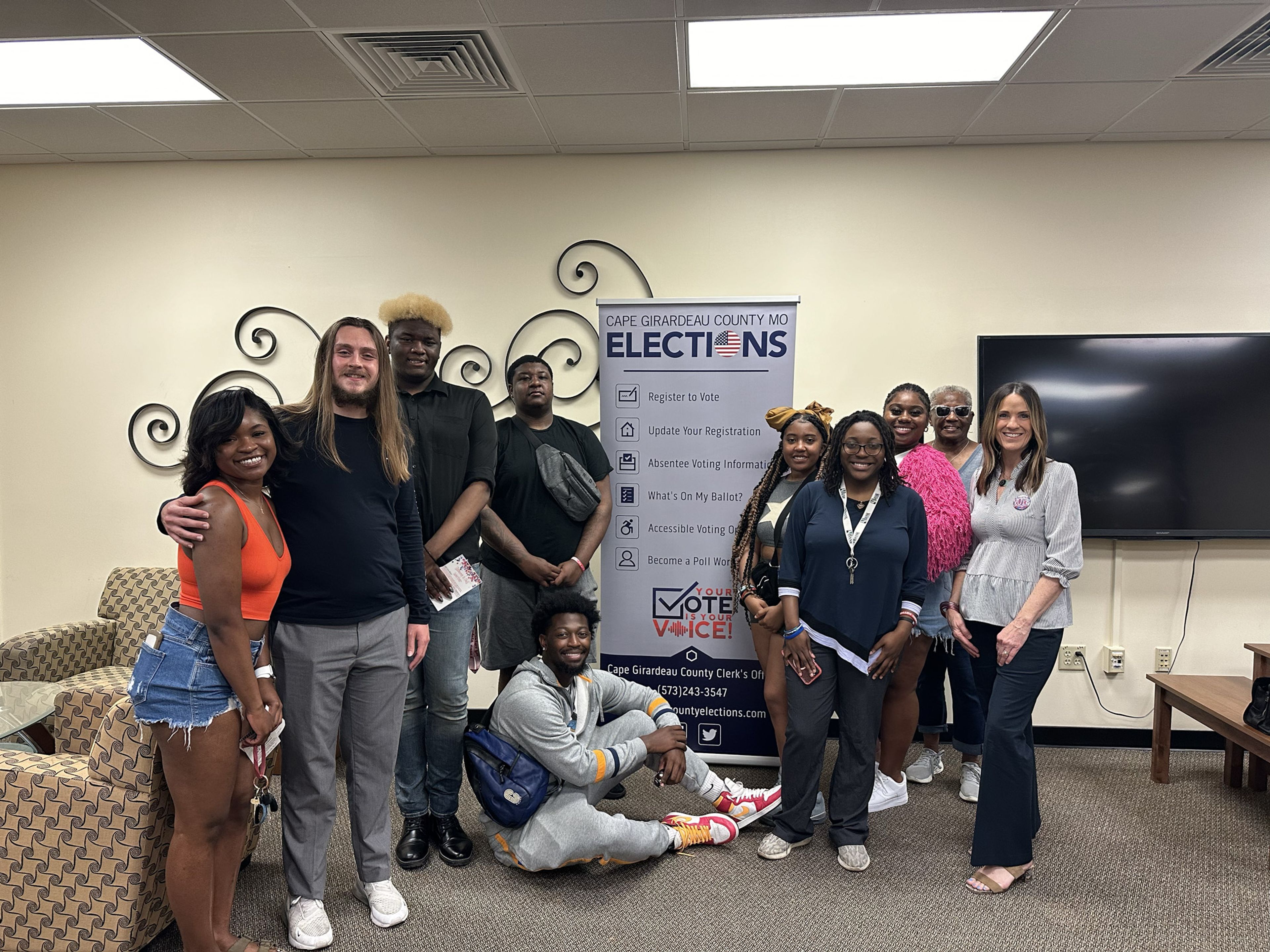It is noon in Missouri and 7 p.m. in the host home of Southeast Missouri State University senior Jocelyn Moylan. Fellow senior and Southeast student Amy Ahrens has walked to Moylan's house in Leon, Spain, to call home before dinner, which will be at 9:30 p.m.
A seven-hour time difference and a new culture have shaped the learning experience for the exchange students, who are studying Spanish in Leon.
Leon is the capital of the province of Leon located in the northwest of Spain and has a population of more than 130,000.
Ahrens is majoring in global studies and Spanish with a minor in anthropology and global studies. Moylan is a double major in Spanish and anthropology. They met on the first day of their first Spanish class their freshman year at Southeast and have become close friends while living in Spain.
This is the first year Southeast has had an exchange program with the Centro de Idiomas (Center of Languages), which is directly affiliated with the Universidad de Leon (University of Leon). From Sept. 3-14, Moylan and Ahrens attended an optional intensive Spanish class, and then their regular classes, such as grammar, film, Spanish history and oral communication, began Oct. 1.
Moylan said they had classes with people from all over the world in the intensive class, but most of those students went on to the university to study whatever they were studying at their home university. Because Moylan and Ahrens are studying Spanish, they stayed to study in the language school, which Ahrens said is similar to the English intensive program at Southeast. The difference between the intensive program at Southeast and the language school in Spain is that the students in Spain study culture, and there are multiple levels in the program.

"We really, really like it here," Ahrens said. "The classes are definitely more laid back here, but they still have high standards for us, especially because we're at the highest level that the program that we're in, that they offer. So our work is definitely tougher, but we don't have homework every night. It's still challenging for sure, and we are learning so much here."
Moylan said since they do not have as much homework as they often did at Southeast, the in-class time is more important. Classes begin at 9:30 a.m. and end at 2 p.m. with a break from 11:30 a.m. to noon. Moylan said one of the biggest differences from studying at Southeast is the schedule and staying in one classroom instead of walking from building to building.
Ahrens said that the professors in the program in Spain have been incredible and have helped her with everything from explaining cultural aspects that she didn't understand to calling government officials to help her with problems with her apartment.
"This program that we're in, like the professors, have been the best professors I have ever had," Ahrens said. "They care about us. They care a lot, and they care about our education. This program has been incredible. ... We're really thankful to be here."

Ahrens and Moylan agreed that staying disciplined and motivated to do their academic work and study is often difficult, especially since they have opportunities to explore Spain in the evenings and on weekends.
"I would hope that the time that we don't spend at a desk, we still gain some kind of language ground by practicing," Moylan said. "That's something that we really don't get in the States, is like real practice."
Living with native speakers of Spanish has helped Moylan and Ahrens, who said they now can speak with complete fluidity without having to think about the fact that they are speaking another language.
Moylan said after having conversations in Spanish she often goes back in her mind to make sure she said everything correctly.
"I think my biggest personal problem was just something that has to do with my personality, which is usually nervous, timid, shy," Moylan said. "So pushing myself to talk to people was hard. I get so nervous."
Traveling and speaking to other Spaniards has also taught them a lot about the language and the culture.
Ahrens said it is inexpensive and easy to travel in Spain and to other close countries, so they often travel on weekends to areas in northern Spain. She said it costs less than $20 to take a bus up north for a day.
"The things that I've learned here are really incomparable to anything else," Ahrens said. "Just being immersed, that's definitely helpful, but just like also, the program. There are so many different components that all of them together have enhanced this experience and enhanced the amount of stuff that I'm learning."
Southern France, Portugal, the east coast of Spain, Italy and Germany are also on Ahrens' list of places she has visited or will visit. She flew to Spain early in order to travel. She took a train to France and visited many cities in northern Spain. She, Moylan and other friends traveled to Portugal and stayed in a hostel. They will again stay in a hostel when they travel together to Italy, and Ahrens has plans to go to Germany before she comes home.
Ahrens said that there are many things about the Spanish culture that she loves and will miss, such as being able to walk everywhere and travel so much.
"It was a lot easier for me to assimilate than I thought it would be," Ahrens said. "But at the same time, certain parts of being here were a lot harder than I thought they would be. Like I didn't think I would miss my family as much as I have."
While it has been difficult for Ahrens to be away from her family, she said getting used to the schedule changes of day-to-day life was easy for her, which Moylan said was one of the most difficult changes for her. From approximately 2-6 p.m. in Spanish cultures there is a time of rest called the siesta when businesses are closed.
"Breakfast doesn't exist unless you're American and your host mom knows you're American, and she feeds you a lot for breakfast, which might be my case," Moylan said. "But lunch isn't until 2 and then dinner at 9:30, so then there's also the siesta that happens, so after lunch don't expect anything to be open until 6, 6:30, 7."
Moylan said that she was pleasantly surprised by how much was the same as it is at home. When she was on the bus after landing in Spain, she said she remembers noticing how a road was just a road, and she doesn't know why she expected anything different.
"I had no idea what to think or what Spain was going to be like because I had never been out of the states before or even, like, driven travelling or what that would be like," Moylan said. "In my mind I just had this big idea that everything was going to be, like, so radically different from anything I'd ever known. There are a lot of things here that were much more similar than I was expecting."
Moylan and Ahrens are in a program that is a 10-week trimester. Their program is different from the students at the university in Spain, whose semester starts in September and ends in February, because they are coming back to the U.S. Dec. 22 and 23, respectively.
"I've learned so much here, and I feel like that sounds so cliché as it comes out of my mouth, but it's true," Moylan said. "I'm excited to come back and to share some of the stuff that I learned here."
A student who studied abroad through Southeast helped Moylan with the process of getting a passport, a visa and filling out all of the paperwork. Moylan is excited to be able to share what she has learned with other students studying Spanish and hopes to be able to encourage other students who are considering studying abroad.
"It's definitely been a confidence booster, and I think it definitely will be when I go back to be like, first off to be able to say we lived in a Spanish-speaking country for four months, and we made it, and we're fine and we didn't have to depend on our English at all," Ahrens said. "It just feels like the beginning, and it's already almost the end."





